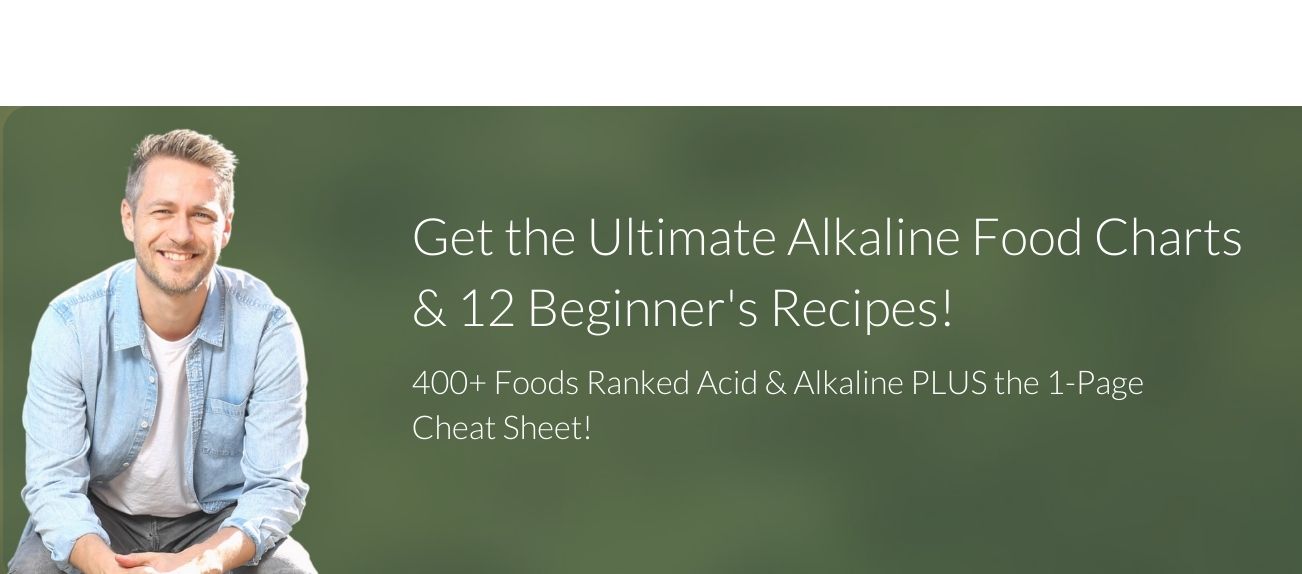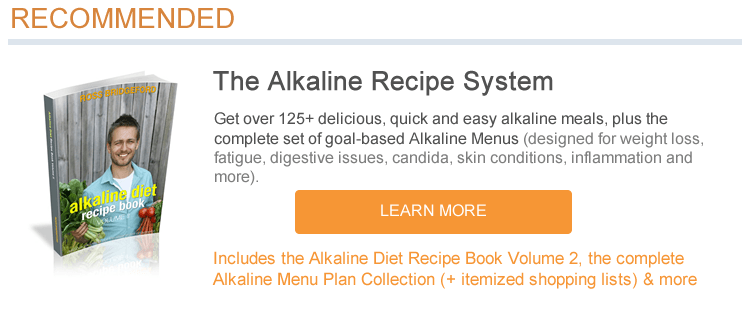9 Research-Backed Cucumber Benefits
The Oft-Forgotten Powerhouse
Cucumber always occupies a huge part of my fridge and I’d estimate I eat a cucumber a day. THAT is the food to keep the doctor away!
Cucumbers are often overlooked in terms of their health benefits, with our attention often going to those rather fashionable greens like kale, spinach, arugula, cilantro and so on. If kale is the hipster moustache of the vegetable world, cucumber is a short back and sides.
However, cucumbers are not only an amazing base for so many recipes, they also contain a heap of phytonutrients that give them the nine brilliant benefits below.
Let’s go through these benefits right now and then get into the organic/non-organic buying info, and of course a few recipes.
9 Scientific, Research-Backed Benefits of Cucumbers
1. Alkaline-Rich
Cucumbers are one of the top seven alkaline foods on Earth and are the cornerstone of any alkaline smoothie or juice.
Rich in phytonutrients, cucumbers are also super-high water content, hydrating AND reducing water retention.
The dark green skin is also chlorophyll-rich, helping build healthy new blood cells and support your body’s detoxification system.
2. Anti-Inflammatory
Thanks to their unique combination of phytonutrients including quercetin, kaempferol, pinoresinol, lariciresinol and more cucumbers are an incredibly anti-inflammatory food. This combination of flavonoids, lignans and triterpenes inhibits the activity of the enzymes in the body that can cause inflammation such as COX-2 while also inhibiting the overproduction of nitric oxide and thus excessive inflammation.
Including cucumber in juices, soups, smoothies, salads and so on makes it easy to decrease the inflammation in your body on a day to day basis.
[SEE ALSO: The Simple Anti-Inflammation Diet That Will Change Your Life Forever]
3. Antioxidant-Rich
Eating an abundance of antioxidants is incredibly important in protecting your body from oxidative stress and the knock on effects of this – increased risk of heart disease, cancer, hypertension, allergies, digestive issues, chronic fatigue and so much more.
Cucumbers are an incredibly unique and abundant source of antioxidants including conventional antioxidant nutrients including vitamin C, beta-carotene, and manganese as well as the more unique flavonoid antioxidants, including quercetin, apigenin, luteolin, and kaempferol.
4. Brain Protective
One of the anti-inflammatory flavonols in cucumber we discussed a moment ago is particularly important for the brain.
This flavanol known as fisetin has been shown to improving your memory, protect nerve cells from age-related decline, and in animal studies has been shown to help prevent the progression of memory and learning impairments in mice with Alzheimer’s disease.
5. Cancer Protective
Cucurbitacins, a group of compounds are attracting a lot of interest in the medical research community for their cancer-fighting capacity – and cucumber contains all five groups: A, B, C, D and E.
Researchers have found that cancer cell survival can be blocked by activity of cucurbitacins.
On top of this, cucumbers also contain the important phytonutrients known as lignans. The lignans pinoresinol, lariciresinol, and secoisolariciresinol have all been found in cucumbers.
The way these lignans fight cancer is actually though the protective activity they have in our digestive tract, and their ability to bind to oestrogen receptors. This is particularly powerful in the reduction of risk of breast, ovary, uterus, and prostate cancers.
6. Supports Digestion
A healthy digestive system needs a constant intake of water and fibre, and cucumbers are rich in both. The fibre-rich, water-rich nature of cucumbers, when combined with the alkalising effect of this vegetable lead to a temporary rise in stomach pH which helps to aid in the digestive process, especially for those with reflux/GERD or IBS.
The skin of the cucumber is important, as this contains insoluble fibre, which helps soothe and cleanse your digestive tract.
7. Supports Healthy Heart
Cucumbers are a great source of potassium which is essential to heart health. Many studies have linked it with lower blood pressure because it promotes vasodiliation (widening of the blood vessels).
A 2011 study of 12,000 adults, published in Archives of Internal Medicine, showed that those who consumed 4,069 mg of potassium each day lowered their risk of cardiovascular disease and ischemic heart disease by 37 percent and 49 percent, respectively, compared to those who took 1,793 mg per day.
The vitamin K in cucumbers is also known to be essential in the blood-clotting process.
8. Help Reduce Stress
It is widely known that B vitamins, including B1, B5 and B7 are essential in reducing feeling of anxiety and undo the damage done to the body caused by excess cortisol (from stress).
For many people the cause and symptom of excessive stress is adrenal fatigue. Too much stress will bring on adrenal fatigue, and having adrenal fatigue will make it much easier to feel stress and more difficult to let stress and anxiety go.
Cucumbers are super supportive of your adrenals. Every pathway that occurs inside the adrenals is supported by B-vitamins and cucumbers contain lots of them, and all of the B’s that are important to your adrenals.
9. Reduce Pain & Aches
If you suffer from chronic aches and pains, cucumber could be your new best friend. Flavonoids and tannins in cucumbers have both been proven to limit the release of free radicals in the body and to reduce pain.
In their 2010 research paper “Free Radical Scavenging and Analgesic Activities of Cucumis sativus (cucumber)”, the researchers compared cucumber extract to the NSAID medication Diclofenac sodium and found the results to be very favourable.
Why Organic Is Advised With Cucumber
Cucumbers have two possible issues that lead me to encourage you to try and find organic:
1: The potential for chemical residues
Every year the Environmental Working Group rank fresh foods from best to worst:
EWG analyzed pesticide residue testing data from the U.S. Department of Agriculture and Food and Drug Administration to come up with rankings for these popular fresh produce items. All 48 foods are listed below from worst to best(lower numbers = more pesticides).
[Get the full EWG guide here it’s a great guide to shop organic or not by!]
Cucumbers finished 12th on the list (i.e. just inside their dirty dozen), which is high enough for me to try and source organic whenever I can.
2: The dangers of wax
Both non-organic and organic cucumbers can be coated in wax by producers to help protect them from bruising during shipping. However, only organic cucumbers will be guaranteed to be waxed in a natural, chemical-free product.
While the wax used by non-organic producers is called ‘food-grade’, they commonly use petroleum-based waxes which often contain solvents.
The other issue with petroleum-based waxes is that they are far stronger than natural waxes (such as beeswax) and can ‘lock in’ the pesticides present on the cucumber. Of course, this isn’t an issue with organic, where no pesticides are used.
I know it is more expensive, but this is one of those foods I would always recommend organic where possible.
Of course, you can peel the cucumber, but it is in the peel that a lot of the benefits described above are stored!
Cucumber-Rich Recipes to Get You Started
You can absolutely add cucumber to any meal, at any time you like! There is no danger of overdoing this super-subtle flavour.
But to help get you started here are a few recipes from my site that contain cucumbers:
- Alkaline Cucumber & Watercress Soup
- The Fat-Flush Juice
- Liver Regeneration Juice
- Smooth Away Cellulite Juice
- Energy Doubling Smoothie
- Immune Boosting Soup
- Wrapless Salad Wraps
And of course pretty much any alkaline juice, smoothie, lots of soups, salads, wraps and so on always contain cucumber in my recipes!
P.S. Take a look at the Alkaline Recipe System. With hundreds of easy-to-prepare Alkaline recipes PLUS 7 goal-based meal plans each with itemized shopping lists (for goals including weight loss, more energy, better digestion, clearer skin and more) – it makes reaching your health goals SO easy!
+ Make sure to sign up for our free newsletter to get our latest alkaline recipes delivered weekly (it’s free).
Scientific References
Cockayne, Adamson J, Lanham-New S, Shearer MJ, Gilbody S, Torgerson DJ; Vitamin K and the prevention of fractures: systematic review and meta-analysis of randomized controlled trials; Arch Intern Med. 2006 Jun 26;166(12):1256-61.
Hong SH, Choi SA, Yoon H, et al. Screening of Cucumis sativus as a new arsenic-accumulating plant and its arsenic accumulation in hydroponic culture. Environ Geochem Health. 2011 Jan;33 Suppl 1:143-9. Epub 2010 Oct 31. 2011.
Kumar D, Kumar S, Singh J, et al. Free Radical Scavenging and Analgesic Activities of Cucumis sativus L. Fruit Extract. J Young Pharm. 2010 Oct;2(4):365-8. 2010.
Lee DH, Iwanski GB, and Thoennissen NH. Cucurbitacin: ancient compound shedding new light on cancer treatment. Scientific World Journal. 2010 Mar 5;10:413-8. Review. 2010.
Milder IEJ, Arts ICW, van de Putte B et al. Lignan contents of Dutch plant foods: a database including lariciresinol, pinoresinol, secoisolariciresinol and matairesinol. Br J Nutr 2005, 93:393-402. 2005.
Rios JL, Recio MC, Escandell JM, et al. Inhibition of transcription factors by plant-derived compounds and their implications in inflammation and cancer. Curr Pharm Des. 2009;15(11):1212-37. Review. 2009.
Rios JL. Effects of triterpenes on the immune system. J Ethnopharmacol. 2010 Mar 2;128(1):1-14. Epub 2010 Jan 14. Review. 2010
Slavin JL; Dietary fiber and body weight; Nutrition. 2005 Mar;21(3):411-8.
Thoennissen NH, Iwanski GB and Doan NB. Cucurbitacin B Induces Apoptosis by Inhibition of the JAK/STAT Pathway and Potentiates Antiproliferative Effects of Gemcitabine on Pancreatic Cancer Cells. Cancer Res 2009;69(14):5876—84. 2009.
Yang J, Wang H-P, Zhou L, Xu C-F. Effect of dietary fiber on constipation: A meta analysis. World Journal of Gastroenterology : WJG. 2012;18(48):7378-7383. doi:10.3748/wjg.v18.i48.7378.
Yang Q, Liu T, Kuklina EV, et al. Sodium and potassium intake and mortality among US adults: prospective data from the Third National Health and Nutrition Examination Survey. Arch Intern Med. 2011;171(13):1183-1191.







Great. I love cucumbers? Thanks for recipes.
Ross, can we buy sprouted wraps in NSW? If so, I’d like to tell my organic Food Co-op where to buy them.
Thanks Kay
That’s supposed to be I love cucumbers!!
LOL …. just one of the veggies I cannot eat 🙁 I wish I could. Would make life a lot easier.